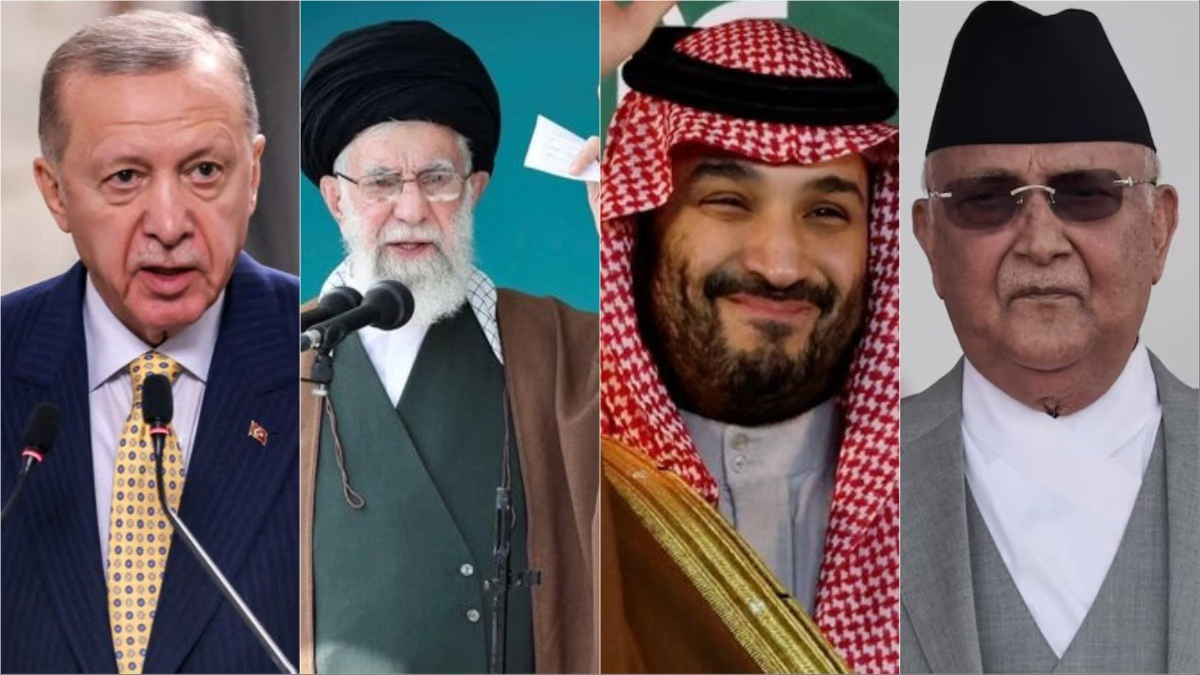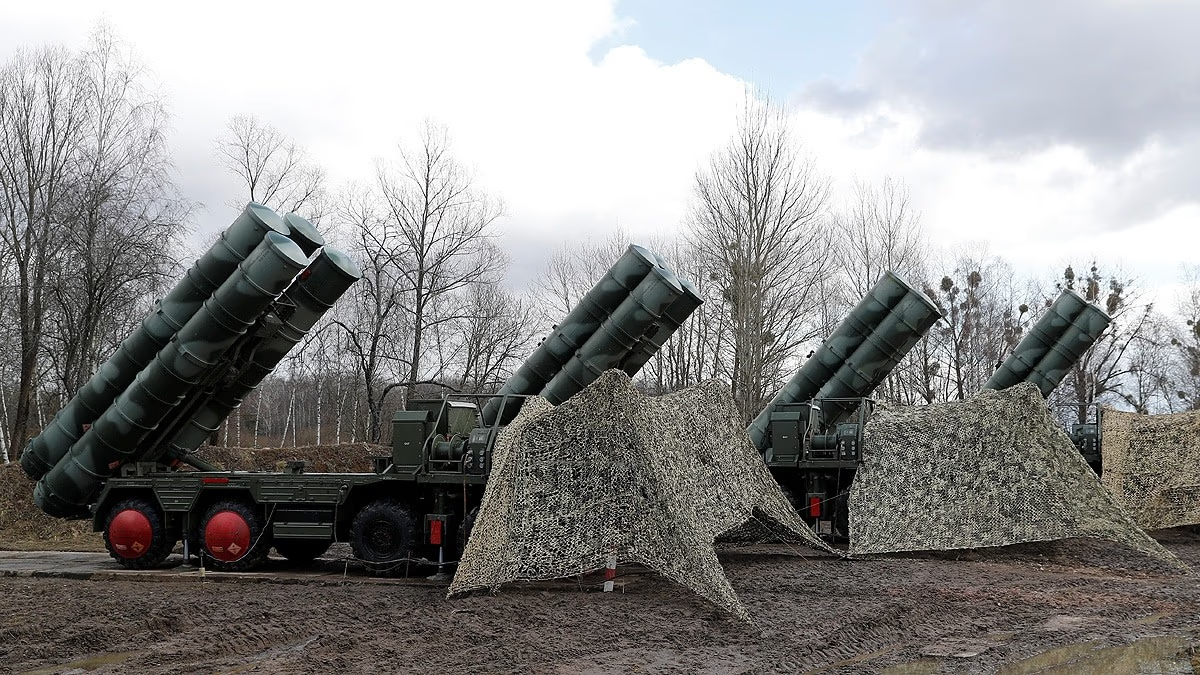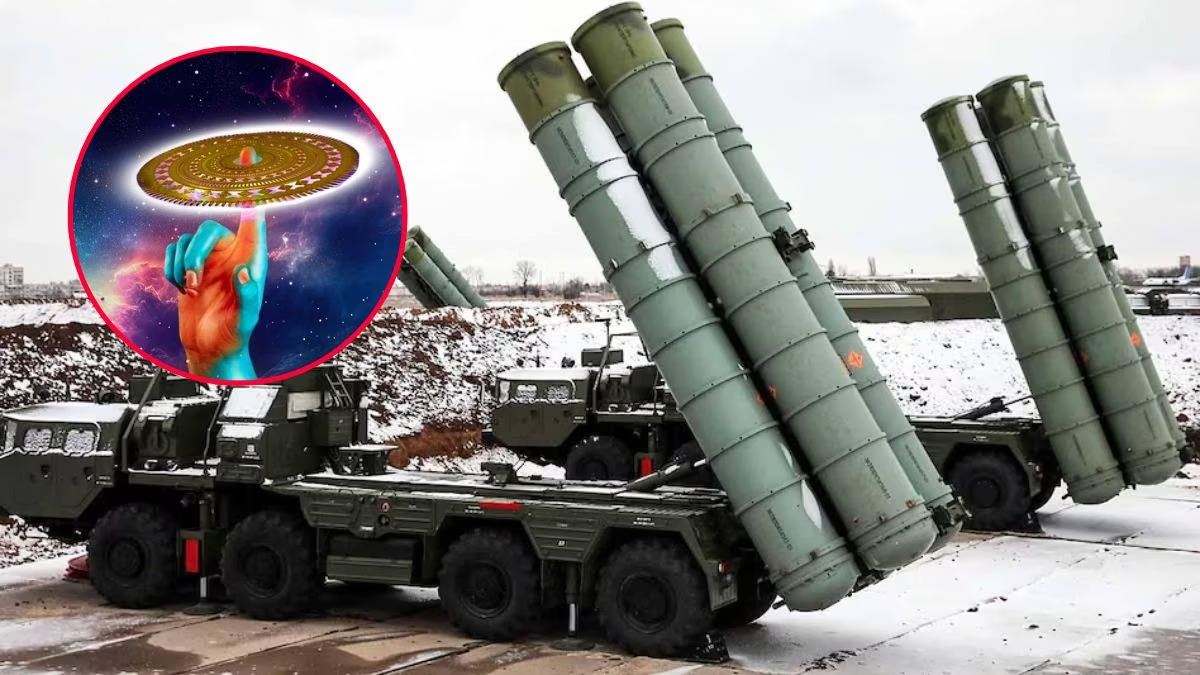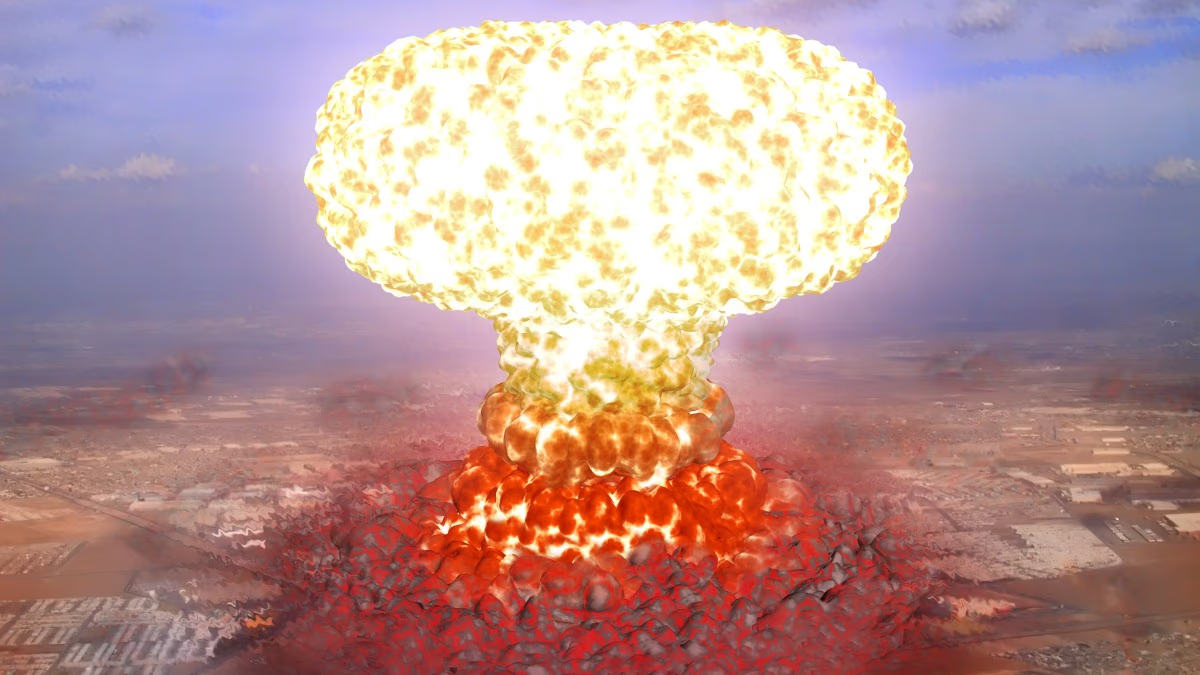Last night, Pakistan attempted to target Indian cities, an endeavor that was thwarted. Using drones and weapons, Pakistan aimed multiple attacks at the western border, which India's sophisticated air defense system, Sudarshan, intercepted. During these confrontations, Pakistan suffered significant losses as India downed their Chinese-supplied JF-16 and F-16 aircraft.
The heightened tensions between these two nations have provoked global anxiety, fearing the conflict could escalate into a larger war. Many powerful countries support India's fight against terrorism, advocating a diplomatic resolution. However, Turkey's stance is drawing attention, as it openly backs Pakistan.
Turkey Stands with Pakistan
On Thursday night, while Pakistan attempted to target India's military and civilian sites shamelessly, Turkish President Recep Tayyip Erdogan prayed for the safety of his 'Pakistani brothers.'
India clarified that its 'Operation Sindoor,' executed in response to the Pahalgam attack, targeted neither military bases nor residential areas but solely terrorist hideouts.
On October 7, India aimed at nine terrorist spots in Pakistan and the illegally-occupied Kashmir under 'Operation Sindoor,' killing at least 100 terrorists. This included ten family members of Jaish-e-Mohammed's leader Masood Azhar.
While these terrorists were being eliminated, Turkey's president expressed condolences to Pakistan and openly paid tribute to the terrorists.
In a social media post on site X, Erdogan expressed concern over the potential escalation of tensions between Pakistan and India due to missile attacks, which could result in significant civilian loss. He prayed for Allah's mercy for those who lost their lives and conveyed condolences to the 'brotherly people' of Pakistan.
Erdogan also mentioned his discussion with Pakistan’s Prime Minister Shahbaz Sharif over the phone amidst the crisis.
Expressing further support for Pakistan, Erdogan noted, 'We support Pakistan's call for an international inquiry on the heinous terrorist attack in Jammu and Kashmir. Some are adding fuel to the fire, but Turkey advocates de-escalation and dialogue. Before matters go out of hand, we are trying every possible way to initiate talks.'
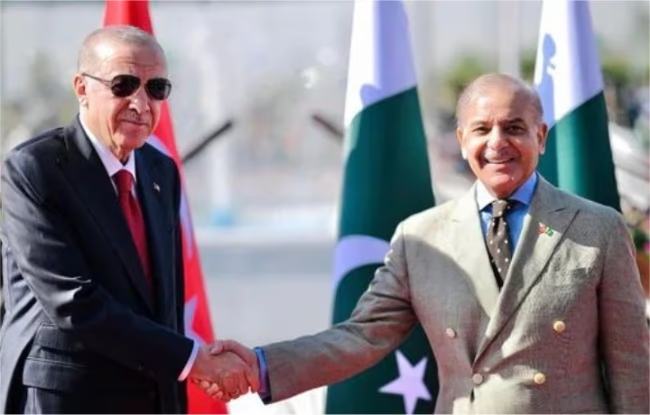
Source: aajtak
Turkey's overt support for Pakistan has sparked significant anger in India. Indians believe there should be a trade embargo with Turkey and calls for its boycott are mounting.
India and Turkey engage in bilateral trade exceeding $10 billion, whereas the trade between Turkey and Pakistan is less than $1.5 billion.
Turkey also aligns with Pakistan on the Kashmir issue. Earlier this year, during his visit to Pakistan, Erdogan expressed support for Pakistan’s efforts to resolve the Kashmir dispute.
Turkey was equally agitated when India revoked Article 370 on August 5, 2019, ending Jammu and Kashmir's special status.
Erdogan once stated, 'Our Kashmiri brothers and sisters have endured hardships for decades, which have worsened due to recent unilateral decisions. Today, the Kashmir issue is as close to us as it is to Pakistan. The resolution will benefit all concerned parties. Turkey stands for justice, peace, and dialogue to resolve the Kashmir issue.'
Is China Supporting Pakistan?
At the onset of increased tensions between India and Pakistan, it was anticipated that China might lean towards Pakistan. However, China's response to the entire situation is unexpectedly neutral, urging both nations to exercise restraint. China's Foreign Ministry expressed concern over the ongoing conditions.
The Ministry stated, 'India and Pakistan are neighbors and will always remain so. Both are China's neighbors too. China opposes all forms of terrorism. We appeal to both to remain calm, exercise restraint, and avoid actions that could complicate the situation.'
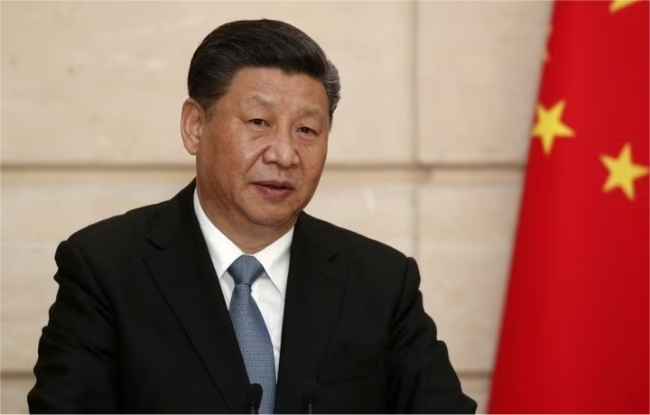
Source: aajtak
During the confrontations with India, Pakistan is heavily utilizing Chinese weapons and ammunition, entirely reliant on China for arms supplies. According to SIPRI (Stockholm International Peace Research Institute), 81 percent of the weapons imported by Pakistan between 2020 and 2024 were Chinese.
However, when questioned about Pakistan using Chinese weapons against India, China's Foreign Ministry spokesperson offered a measured response, indicating no knowledge of the matter.
Some analysts believe China's interests are deeply tied with both India and Pakistan, thus preferring to avoid a broad-scale war between the two. China is India's second-largest trade partner, with bilateral trade hitting $127.7 billion in 2024.
Conversely, China has invested heavily in Pakistan. The flagship project of China's ambitious Belt and Road Initiative, CPEC, resides in Pakistan, with investments of $68 billion since 2005 until 2024.
Where Does Neighbor and Ally Nepal Stand?
Among the 26 casualties of the Pahalgam terror attack on April 22 was a Nepalese national. Nepal, affected by the attack sponsored by Pakistan, has declared its stance against terrorism alongside India and will not permit its land to be used against neighboring countries by any adversary force.
In a statement, Nepal's Ministry of Foreign Affairs expressed, 'The Government of Nepal is concerned about the increasing tensions between India and Pakistan following the terrorist attack on innocent tourists, including a Nepali national, in Pahalgam. During this period, Nepal and India remained united in shared sorrow and pain. Nepal categorically condemns this brutal terrorist attack, which aligns with Nepal’s firm stance against all forms of terrorism.'
The statement further affirmed, 'Nepal will not allow any adversary force to use its land against its neighboring countries.'
Former Deputy Prime Minister of Nepal and senior Nepal Congress leader Bilendra Nidhi also expressed support for India. He wrote in a post on X, 'We stand with India in the fight against terrorism. Congratulations to the Indian army for the successful Sindoor operation against terrorists.'
What's the View of World Leader USA?
On April 22, when the Pahalgam attack occurred, U.S. Vice President J.D. Vance was on a visit to India with his wife and three children. Vance condemned the attack and partially attributed responsibility to Pakistan in an interview on Fox News. He stated, 'It's hoped, post-attack, India's response does not evolve into a major regional conflict.'
He further hoped Pakistan, however responsible, would cooperate with India to locate and address the terrorists.
With tensions escalating between the two nations, the spokesperson for the U.S. State Department, Tammy Bruce, remarked in a Thursday press briefing that the U.S. maintains ongoing discussions with both India and Pakistan to establish peace and reduce existing tensions.
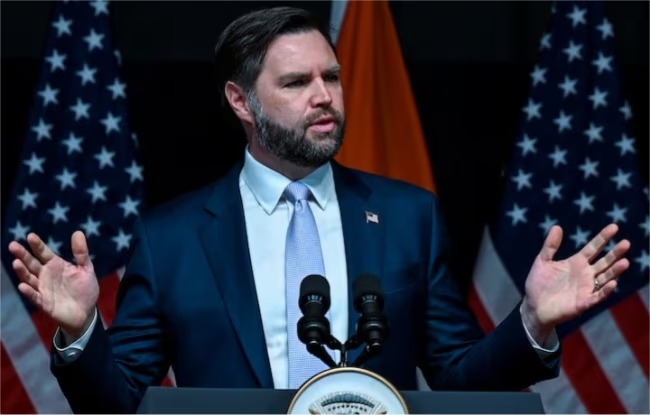
Source: aajtak
On Thursday night, following Pakistan's failed attempt to target Indian cities, India's External Affairs Minister S. Jaishankar conversed with his American counterpart Marco Rubio over the phone.
In response to the heightened tensions, U.S. Vice President Vance has stated that the U.S. will not intervene between India and Pakistan as it is not America's responsibility.
In an interview with Fox News, he said, 'We can urge both sides to de-escalate, but we will not get involved in what might lead to war as it is not our role, nor can we control it. The U.S. cannot ask India to disarm, nor can it ask Pakistan to do so. We can resolve this diplomatically. We hope the current situation does not evolve into a larger or nuclear conflict. Though currently, we do not see it heading that way.'
Where Does Saudi Arabia Stand in India-Pakistan Tensions?
Once a close friend of Pakistan, Saudi Arabia's relationship was grounded in Islam. Both Sunni Muslim nations, Pakistan and Saudi were previously very close based on religion.
However, the world has now changed significantly where geopolitical equations are not determined by religion. Saudi Arabia and India have become very good friends.
During the Pahalgam attack, Prime Minister Narendra Modi was on a visit to Saudi Arabia, where he met with the de facto ruler, Crown Prince Mohammed bin Salman. MBS hosted a state dinner in honor of PM Modi, but due to the attack, PM Modi had to cut his visit short and return to India.
PM Modi and MBS share a warm relationship, with Modi referring to MBS as 'brother.' In a recent interview with Arab News, PM Modi stated Saudi Arabia is one of India's reliable friends, strategic allies, and most important collaborators.
Amidst the ongoing battle between India and Pakistan, Saudi Arabia's Foreign Minister Adel Al-Jubeir made a sudden visit to India. Upon arrival, he met with Foreign Minister Jaishankar, urging both sides to de-escalate tensions.
Regarding the meeting, Jaishankar wrote on X that he had a very good meeting with Al-Jubeir on Thursday morning, in which 'India's perspective on firmly combating terrorism was shared.'
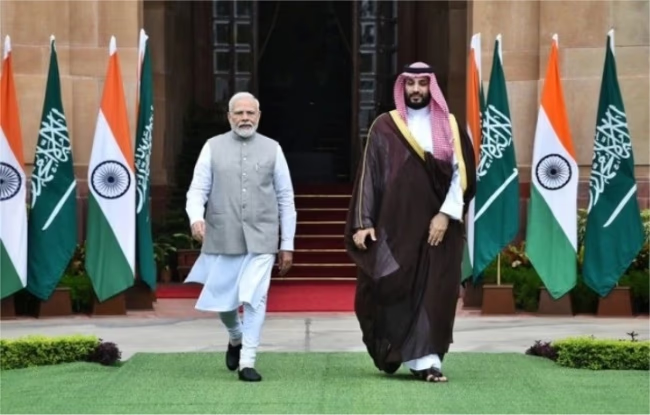
Source: aajtak
The cooperation between India and Saudi Arabia is continually expanding, with bilateral trade between the two countries reaching $43 billion in the fiscal year 2023-24. Saudi Arabia is India's fifth-largest trade partner, while India is Saudi's second-largest trading partner.
In terms of trade, the business between Pakistan and Saudi Arabia stood at $5.2 billion in the fiscal year 2024.
Saudi Arabia consistently criticizes Pakistan over the growing issue of beggars. Pakistanis come to Saudi Arabia on Haj or Umrah visas and engage in begging. In Saudi Arabia, begging is a crime, and a large number of Pakistani beggars are caught. Saudi often attacks Pakistan over such beggars.
Where Does Iran Stand?
Immediately after Operation Sindoor, Iran's Foreign Minister Abbas Araghchi embarked on a two-day visit to India. During his visit, he met with Foreign Minister S. Jaishankar, National Security Advisor Ajit Doval, and President Droupadi Murmu, urging both India and Pakistan to exercise restraint.
He stated, 'We expect India and Pakistan will help reduce tensions in the area. Our region needs peace, especially to enhance economic cooperation among regional countries. I believe that's what will happen.'
Before his India trip, Iran's foreign minister had discussions with Pakistan's Foreign Minister Mohammad Ishaq Dar over the situation and emphasized resolving the current conditions through diplomacy and dialogue. He also spoke with Pakistani Prime Minister Shahbaz Sharif and President Asif Ali Zardari, urging a de-escalation of tensions.
The relationship between Iran and India has not been as strong as that between Pakistan and Iran. Iran has sided with Pakistan on the Kashmir issue but during the recent tensions, Iran's approach has been commendable. Iran is striving to remain entirely neutral in the tensions between India and Pakistan.
